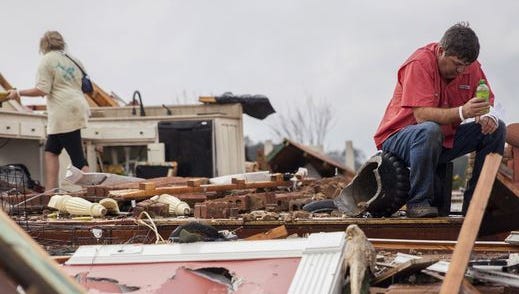It's been a disastrous, costly start to the year for weather

If the first three months of the year are any indication, 2017 is already shaping up as a disastrous and costly one for weather in the U.S.
Five separate weather disasters in the U.S. each caused at least $1 billion in damage through March, the National Oceanic and Atmospheric Administration said in a report released Thursday.
That's the highest tally on record for so early in the year and twice the average of 2.4 disasters, said NOAA, which has data going back to 1980.
The disasters included the California floods in February, the Southeast freeze last month and three separate severe weather events.
The severe weather and tornado outbreak in the South in January that killed 24 people marks the deadliest event so far this year. A severe outbreak in the Midwest in early Match that caused $1.5 billion in damage is the costliest.
The Storm Prediction Center confirms 2017 has been an unusually stormy year: As of Wednesday, the center has tallied 486 reports of tornadoes in the U.S., almost double the to-date average of 252.
Another marker of extreme weather, the U.S. Climate Extremes Index, was also the highest on record for January through March and more than double the average, NOAA said. The climate extremes index tracks extremes in temperature, precipitation and drought across the lower 48 states.
The U.S. is seeing its second-warmest start to the year on record, with a nationwide average temperature of 40.3 degrees, 5.1 degrees above average. Only 2012, at 41.4 degrees, tops that.
Six states — New Mexico, Texas, Oklahoma, Louisiana, Mississippi and South Carolina — are experiencing their warmest year since records began in 1895. No state has been record cold, and only Washington is having a cooler-than-average start to the year.